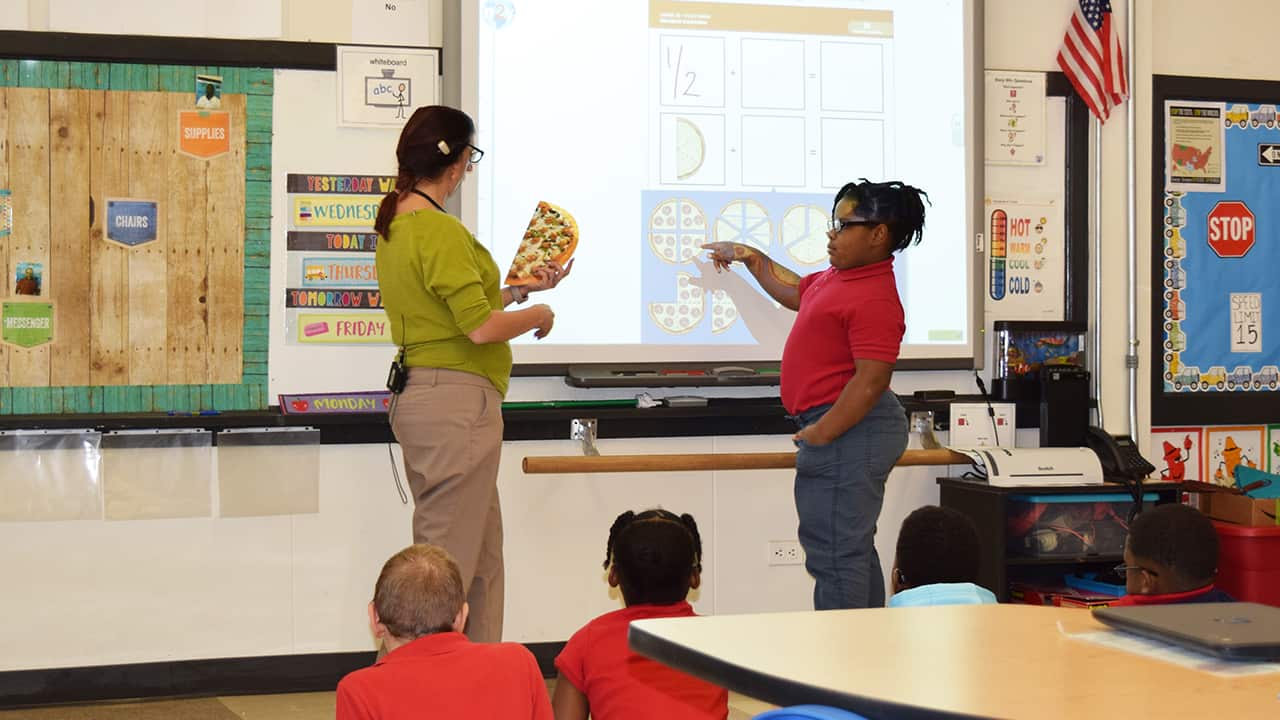For parents of students with disabilities, these shed light on the effectiveness of the services and accommodations outlined in their child’s Individualized Education Program (IEP). Comments on IEP progress reports usually include language such as Mastered, Making Progress, Some Progress, Not Addressed, or Needs Improvement to describe advancement toward accomplishing IEP goals. Because IEP goals are designed annually, there are often smaller objectives included within the goals. These objectives are benchmarks along the way toward the accomplishment of the annual goal.
What can you do if your child isn’t showing progress toward IEP goals?
What options do you have if the teachers are sharing feedback that your child is acting out, withdrawing, plateauing, or struggling? What if the IEP just isn’t working?
Carefully think about and record your concerns
First, don’t panic. Take a deep breath and remember that it is not uncommon for students to experience setbacks, particularly as they adjust to new teaching styles, routines, and expectations at the beginning of a school year. It’s likely that more students will experience a greater degree of regression in the 2020–2021 school year as a result of the coronavirus pandemic. The pandemic created a collective trauma for the nation—all students have been affected in some way. Further, because most schools moved to remote learning for the spring, many students will show gaps in understanding for some key concepts. This is especially true for students with learning and behavioral differences.
Now, take some time to clarify your concerns. Write down the specific things you’re worried about and any questions you have. This will help direct your next steps. Are you concerned about your child’s behavior in just one class or all classes? Are you worried about test grades or homework completion, or both? Have you noticed a change in their mood and energy at home?
Connect with the teacher
Next, get in touch with your child’s teacher. Send an email or connect via your school’s messaging app. Maybe you can catch them after school to set up a meeting. Ask the teacher to elaborate on the progress report comments. They may be able to provide work samples or share anecdotal insight that relieves some of your concerns. You might ask the teacher to explain what intervention strategies they have tried or plan to try soon. You can also ask them what you can do at home to supplement the work being done in the classroom.
Consider calling an IEP meeting
If you’re still worried after you’ve talked with your child’s teacher (and/or IEP case manager), you can call an IEP meeting. This is one of your rights as a parent of a student with a disability. You don’t have to wait until your concerns are dire. It is best to send your request for the IEP meeting in writing. IDEA does not specify the timeline in which the IEP meeting must take place once a parent has made a request, but some states do. Check your state’s education website or Parent Training and Information Center (PTI) for more information.
One important note before calling the IEP meeting: Think about how long your child’s IEP has been in place. Was it established several months ago or just a few weeks ago? If it has only been in place for a few weeks and you aren’t yet seeing progress toward IEP goals, it might be too early. If this is the case, still contact your child’s teacher, but try waiting a few more weeks to be sure you are reviewing accurate and definitive data.
Examples of when an IEP meeting would be beneficial
Your child’s IEP was updated six months ago. On the progress report that just came out, you are thrilled to learn that your daughter has mastered all of her math goals! You call an IEP meeting to request new goals since there are still six months left of this school year.
Your son was sick with a serious and rare illness several months ago. He has been discharged from the hospital and cleared to return to school, but he now requires several pieces of adaptive equipment for mobility and has difficulty with memory and attention. The IEP that was in place prior to his illness was to support his dyslexia. You call an IEP meeting to discuss the additional services and supports he will need.
A fourth-grade student has not made progress on any of her reading or writing goals this quarter. Her general education and special education teachers have tried two different interventions in small groups, but her scores on all assessments show a plateau or a regression. Her parent calls an IEP meeting to discuss the possibility of more intensive reading support in a one-on-one setting.
An eighth-grade student has been acting out more and more since the start of the school year. Phone calls home, detentions, and other disciplinary measures have become regular occurrences. It’s only the third month of school, but his grades are suffering across all subject areas. His parent requests an IEP meeting to evaluate the behavioral support services currently in place on his IEP and to discuss possible accommodations.
How to prepare for the IEP meeting
When you’re preparing for the IEP meeting, make a list of your concerns and any associated questions or proposed changes. It is likely that the other members of the IEP team will share your concerns and will want to collaborate on the next steps to ensure your child is set up for success. Collaboration is critical! Each member of the IEP team brings a specific expertise and an important perspective about your child’s strengths and challenges. The collective knowledge and experience of the whole team—including you!—have great potential to help the team develop an IEP that really works.
For example, if you are concerned that your child has great reading fluency but struggles with comprehension, share this with the team. Explain that you’re worried they don’t seem to remember what they’ve read and always have difficulty finishing their summaries for homework. Your concerns should not be surprising to your child’s teachers. The general education teacher, special education teacher, and speech-language pathologist, for example, will each have insight about interventions to try in the classroom and strategies for you to work on at home.
If you have work samples, independent evaluations, medical documentation (including changes in medication), or any other relevant data, bring it to the meeting. Many parents keep an IEP binder and track their children’s progress and communication with the school. Bring these notes with you as well for your reference.
Collaboration is key for your child’s success
Sometimes, emotions run high in IEP meetings. Especially when the IEP “isn’t working”—when the student is really struggling. Try your best to take deep breaths and stay calm but firm in your advocacy for your child. It’s important to keep an open mind and work collaboratively with the team because it is almost always the case that each member is also working really hard for the sake of your child (and many other children, too). Passionate and difficult conversations are born from hearts that truly care.
The collaborative nature of the team is such that different members have unique expertise to share. So when everyone truly listens to one another and has a chance to offer their professional insight—including your special insight into your own child—the IEP team develops a stronger individualized education program. And in the end, it’s your child who reaps the benefits.



